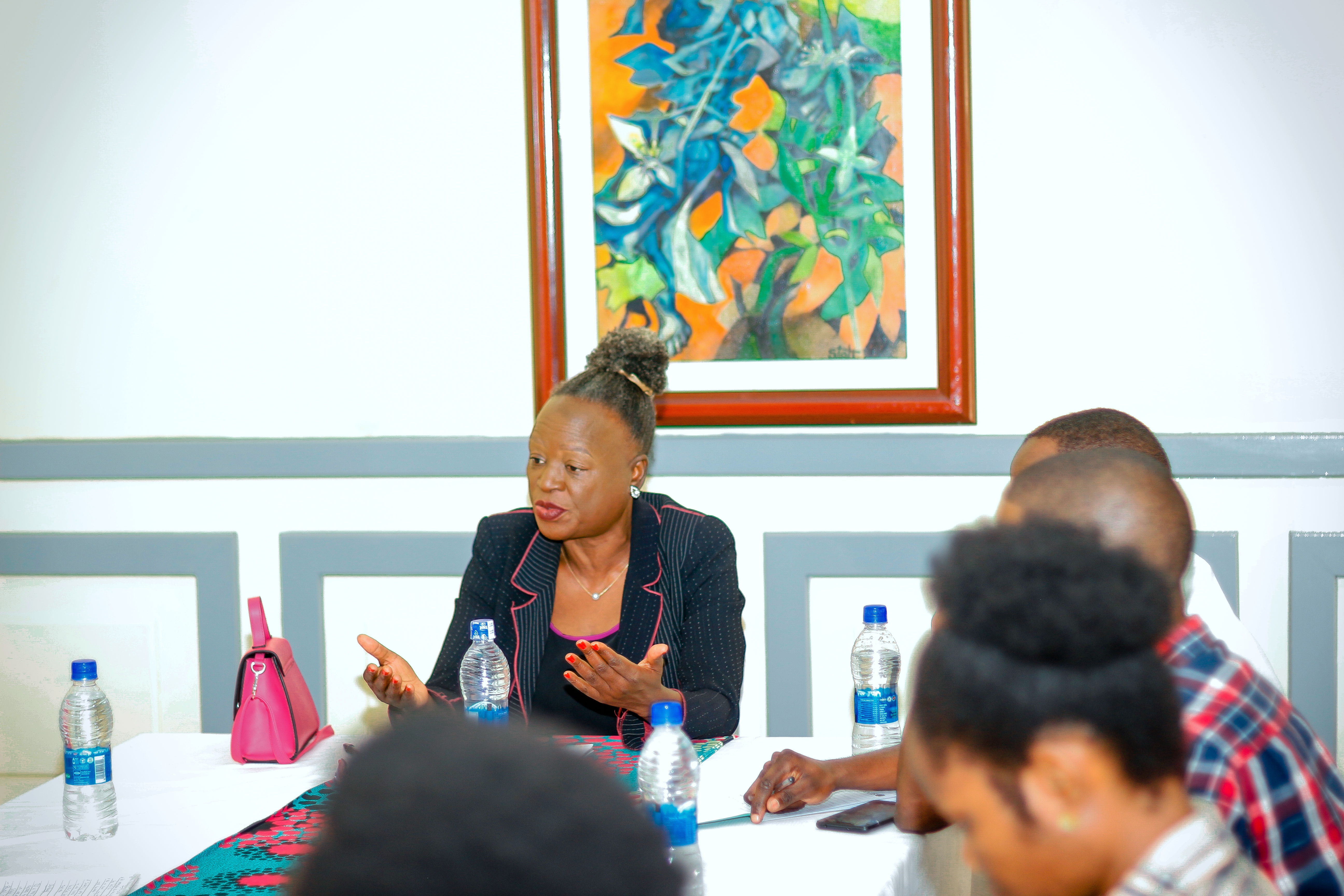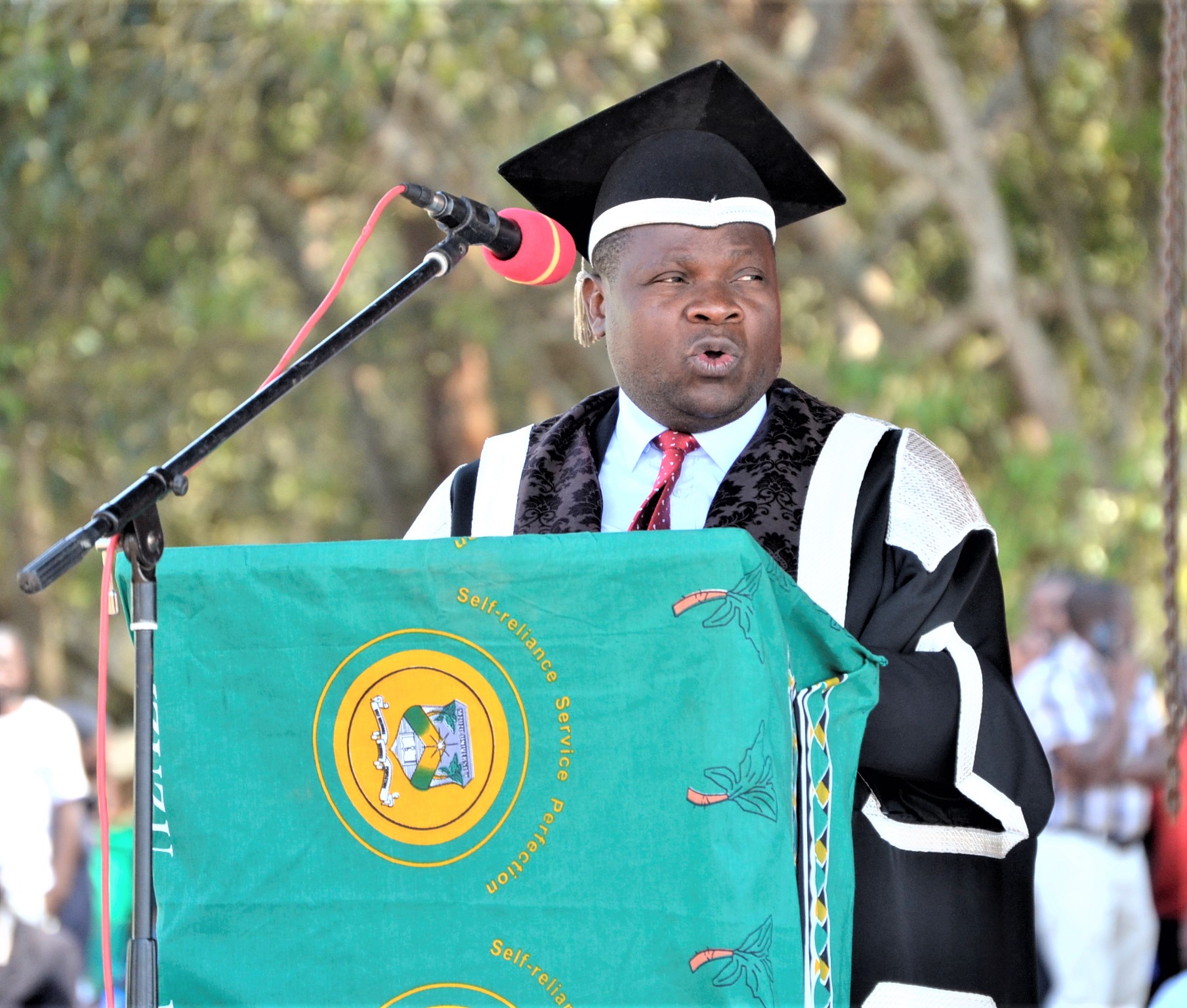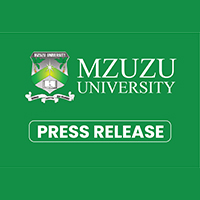Stakeholders impressed by NAGEL Project
Mzuzu University’s (MZUNI) multidisciplinary project on the African Theology of Health and Healing in Malawi, which is supported by the Nagel Institute, has impressed stakeholders after meeting most of the set milestones.

Speaking on the project’s progress, the Team Leader Associate Professor Rachel NyaGondwe Fiedler said the team is upbeat to finish the project in time and it is impressed with the progress.
In a presentation that was done by the co-leader of the team, Dr Joshua Kumwenda of the Department of Language, Culture and Creative Studies at MZUNI, the team highlighted that the project team had signed up four key deliverables which included at least two articles/ books produced out of the research project, at least one conference/ workshop produced out of the research project, an international conference presentation and a curricular plan, course or module out of the project.
In the formative spirit of assessment, the team is on track as it has submitted six manuscripts consisting of three journal articles and three book chapters that have been peer reviewed and are waiting for official publication.
“This is a tremendous success on the project because we have exceeded the set targets, this speaks volumes about the members’ hard work and dedication,” Dr Kumwenda said.
He highlighted that several papers and book chapters are still under review in various outlets and the next briefing on the project will give a note on the same.
The papers published so far include those on the lived experiences of women during the COVID-19 peak, decolonisation of healing, prevention and cure during COVID-19, black African experiences with the pandemic, the church’s response towards prevention and care during the COVID-19 pandemic and a paper on Isabel Apawo Phiri’s theology of resistance.
“This project is searching for a relevant and African Theology of health and healing considering the experiences of Africans during the peak COVID-19 and HIV/AIDS, the current approaches are inadequate since they are Eurocentric and they fail to capture the African lived experiences,” Dr Kumwenda said.
The other achievements include a local conference that was held at Mzuzu Hotel in March 2022 under the theme ‘Integrating Social Science Methodologies into African Theology and Religious Studies Research’ where members presented several papers. The team also presented a paper titled “Untold Strength: Why are there Fewer Women Infected by and Dying from COVID-19 than Men?” in May 2022 at the 2022 Pan-African Christian University conference held in collaboration with Nasarawa State University, Nigeria and Hindustan College of Arts, India.
In her remarks, Fiedler highlighted that the team has commenced curriculum development activities to modify the existing Bachelor of Arts Theology programme in the Department of Theology and Religious Studies.
Currently, the programme has more traditional theology hence the need to bring in issues of hybrid theology concerning current trends in public health and African culture in relation to the pandemics.
“We need a theology that responds to the African spiritualities in terms of health and healing while weaving indigenous knowledge, religious ethics and spirituality in the course of studying theology and religious studies,” she said.
During the event, the team presented a book to the University through the University Librarian Associate Professor Felix Majawa. Associate Professor Majawa said he was excited to receive the book titled Ancient Christianity – The Development of its Institutions and Practices.
Head of Department of Theology and Religious Studies, Dr. Rhodian Munyenyembe said the book is a vote of confidence from the funders of the project.
“There were three books and we have been chosen to be one of the receivers out of the 12 groups doing a similar study. This is a sign of confidence in the progress we are making, out of 12 groups doing a similar study, it is an honour as a department and a university to be gifted with such a book, it will not just add to the shelves decoration but help in imparting knowledge to the students, to us the book is nod,” Munyenyembe said.
While celebrating the success of the project, the team has encountered several challenges from uncooperating respondents to institutional bureaucracy. For example, some respondents in the completed studies refused to give information since they wanted money as they had heard that COVID-19 activities were financially supported.
“Some respondents demanded money because they heard stories that people working on COVID-19 related activities were pocketing huge sums of money from the government and donors,” said Dr Kumwenda, who is one of the researchers.
The project team comprises Dr Felix Nyika, Dr Joyce Mlenga, and Dr Rhodian Munyenyembe from the TRS Department, Dr Joshua Kumwenda from the Department of Language, Cultural and Creative Studies, Dr Atipatsa Kaminga from the Department of Mathematical Sciences and Statistics, and Associate Professor Rachel who is the team leader.
Other issues that were highlighted at the event were key findings and themes. The team is set to go into another phase of data collection and paper writing. The three years interdisciplinary project spearheaded by the Department of Theology and Religious Studies on “African Spiritualties and Biomedical Approaches to Healing and health in the Context of COVID-19 and HIV& AIDS in Malawi” strives to integrate social science methodologies into African Theology and religious studies research.
The Nagel Institute strives to support African theologians to engage in social scientific integrated approaches to produce creative and original projects in grounded Theology. The Nagel Institute is an educational research institute within Calvin University, focused on ways in which the study of World Christianity can change perspectives, foster knowledge, and reinvigorate Christian thought and practice.



